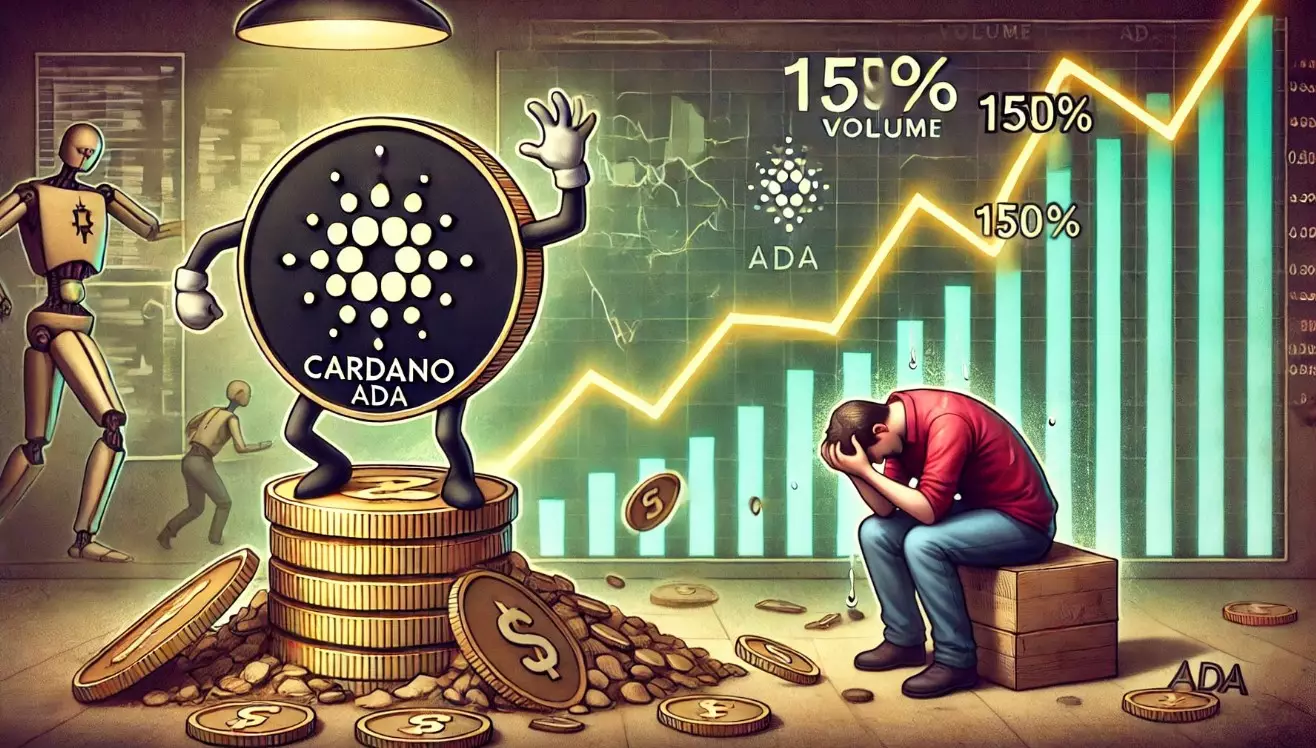In the rapidly evolving landscape of cryptocurrency, Cardano (ADA) has recently captured attention following its Chang hard fork upgrade that occurred in September. Charles Hoskinson, the platform’s founder and a notable figure in the blockchain community for co-founding Ethereum (ETH), has lauded Cardano’s advancements, asserting its position as a leading contender among cryptocurrencies. He firmly believes that Cardano not only rivals but outperforms major players like Bitcoin (BTC) in the realm of decentralization, a critical attribute in today’s digital economy.
At the heart of the recent developments is the Chang hard fork, a change designed to enhance the network’s governance model. Unlike traditional governance structures that often concentrate power among a select group, this upgrade aims to foster a more distributive approach. Hoskinson has actively discussed this transformation, particularly during his keynote at the Token2049 Conference in Singapore. He emphasized that this evolution allows for an inclusive governance model, which redistributes decision-making authority from the few to a broader base of community members, addressing a significant concern he has regarding the centralized nature of Ethereum’s operations.
One of Hoskinson’s principal critiques of Ethereum revolves around its reliance on its founder, Vitalik Buterin. In his perspective, this dependency creates a bottleneck that hinders innovation, contrasting sharply with the proactive model that Cardano has established. With the introduction of delegated representatives (DReps), Cardano enables various stakeholders to interact, vote, and actively participate in a transparent blockchain governance structure. This initiative ensures that development continues seamlessly, regardless of any single individual’s status within the network. As Hoskinson succinctly put it, the initiative is designed so that “Charles, alive or dead, doesn’t matter,” suggesting the network’s resilience and ongoing potential for innovation.
Supporting Hoskinson’s claims are the impressive metrics associated with the Cardano blockchain. In its seven years of existence, the platform has recorded over 74,000 Plutus scripts, indicative of its advanced smart contract capabilities. Additionally, there are 1.3 million delegated wallets on the system, demonstrating robust community engagement. The launch of approximately 1,373 projects further signifies Cardano’s thriving ecosystem, a fact highlighted in a compelling video presented by Input Output Global (IOG), the organization spearheading the blockchain’s development.
Looking towards the future, Cardano is poised for significant advancements in decentralized governance. The network plans to transition away from its original genesis keys—an essential element that has governed its operations since inception. To facilitate this change, greater involvement from stake pool operators (SPOs) and DReps will be crucial, alongside the formation of a new Constitutional Committee (CC). By further shifting governance towards a decentralized model, Cardano aims to enhance operational thresholds for its stake pool nodes and expedite the completion of decentralized applications (DApps).
The ultimate goal is to usher in the Voltaire era, marking a fully self-sustaining blockchain environment. The transition will culminate in the final deployment of the genesis keys during another anticipated hard fork. However, details surrounding the timeline for this pivotal transition remain unconfirmed, with further announcements awaited from IOG and Hoskinson himself.
The effects of the Chang hard fork are likely to reverberate throughout the cryptocurrency space, as Cardano positions itself as a trailblazer in decentralized governance. By emphasizing community empowerment and sustained innovation, Cardano aims not only to thrive but redefine the very principles that underpin blockchain technology. As the network journeys further into its governance transformation, it stands as a testament to the potential of decentralized systems in a world increasingly reliant on digital currencies. With ongoing advancements and heightened community engagement, Cardano is setting the stage for a dynamic evolution within the crypto ecosystem, positioning itself as a frontrunner in the industry.

